 Your new post is loading...
 Your new post is loading...
Programming language C might be 48 years old, but it's still hugely relevant for developers today and, by one measure, still more popular than Python.
That's according to Tiobe's January 2020 language popularity index. Tiobe, which bases its rankings on queries on major search engines, awarded C the programming language of 2019 title because it saw an increase of 2.4% in queries over the past year, which was greater than C#'s 2.1% and Python's 1.4%.
While machine learning and data science have propelled Python to new heights in 2019, Tiobe attributes C's continued popularity to the Internet of Things and the ton of smart devices being released these days. Learn more / En savoir plus / Mehr erfahren: https://www.scoop.it/t/21st-century-learning-and-teaching/?&tag=Programming...
Via Gust MEES
Back in 2017 I blogged how ALT had taken a different approach to developing strategy which had made the often dry, boring process more engaging and meaningful. Well, it’s now nearly 2020 and we’re developing a new strategy, so ALT have handily updated on what they achieved over the last strategy period. And as well as a nice report, we have GIFs! It may seem trivial, but I think being able to boil your outcomes down to some GIFs may be both a useful exercise in practising clarity of message, and also make them more social media friendly.
Via Elizabeth E Charles
Welcome, BERT Your internet searches are making Google one smart cookie, thanks to artificial intelligence. For quite some time, algorithms have quietly worked their way through search engines, analyzing, and ranking the keywords. This newer search-ranking system is the Bidirectional Encoder Representations from Transformers (BERT). Bert arrived in the search room in October 2019. BERT is the artificial intelligence algorithm designed to understand subtleties in language. The program’s algorithms can discriminate between the use of prepositions like “to” and correctly determine relationships between words and phrases. It reads nuances.
Via Elizabeth E Charles
Many professors worry when they hear the word “innovation,” or when they see college leaders looking to the business world to upgrade practices o
Via Peter Mellow
Common Sense Media's latest census reveals the shifting nature of kids' online experiences. Advice from Common Sense Media editors.
Via Ana Cristina Pratas
Successfully meeting the challenges of today’s learning technology landscape requires a more reflective, more critical perspective.
Via Peter Mellow
In the past six months alone, 200 universities have announced 620+ free (or partially free) online courses. Here's the full list.
Via Peter Mellow
An engaging learning experience in which students are fully immersed in the content is driven by six variables, according to new research. The State of Engagement 2019 report, from edtech SaaS provider GoGuardian, features insight from hundreds of students, teachers, school leaders, and IT administrators to identify the specific factors contibuting to an engaging learning experience.
Via Elizabeth E Charles
If you have just started embarking your journey through the Design Thinking process, things might seem a little overwhelming. This is why we have prepared a useful overview of the Design Thinking process, as well as some of the popular Design Thinking frameworks commonly used by global design firms and national design agencies.
To begin, let’s have a quick overview of the fundamental principles behind Design Thinking:
Design Thinking starts with empathy, a deep human focus, in order to gain insights which may reveal new and unexplored ways of seeing, and courses of action to follow in bringing about preferred situations for business and society.
It involves reframing the perceived problem or challenge at hand, and gaining perspectives, which allow a more holistic look at the path towards these preferred situations.
It encourages collaborative, multi-disciplinary teamwork to leverage the skills, personalities and thinking styles of many in order to solve multifaceted problems.
It initially employs divergent styles of thinking to explore as many possibilities, deferring judgment and creating an open ideations space to allow for the maximum number of ideas and points of view to surface.
It later employs convergent styles of thinking to isolate potential solution streams, combining and refining insights and more mature ideas, which pave a path forward.
It engages in early exploration of selected ideas, rapidly modelling potential solutions to encourage learning while doing, and allow for gaining additional insight into the viability of solutions before too much time or money has been spent
Tests the prototypes which survive the processes further to remove any potential issues.
Iterates through the various stages, revisiting empathetic frames of mind and then redefining the challenge as new knowledge and insight is gained along the way.
It starts off chaotic and cloudy steamrolling towards points of clarity until a desirable, feasible and viable solution emerges.
As we have seen from the definitions and descriptions, Design Thinking means many things to many people, and this theme persists into the practical implementation as well. There are a wide variety of process breakdowns and visualisations ranging typically between 3 and 7 steps. Each process step or phase embodies one or more of the core ingredients of design thinking that being, reframing, empathy, ideation, prototyping and testing. These different implementation frameworks or models might have different names and number of stages, but they embody the same principles laid out in the bullet points above.
Learn more / En savoir plus / Mehr erfahren: https://www.scoop.it/t/21st-century-learning-and-teaching/?&tag=Design-Thinking https://gustmees.wordpress.com/2014/10/03/design-the-learning-of-your-learners-students-ideas/
Via Gust MEES
As the world fills with more sophisticated AI and ubiquitous technology, human skills--compassion, empathy, etc.--will define the competitive edge of workers and entire organizations. So those interested in thriving in a high-tech world must put renewed prioritization on emotional intelligence and soft skills.
Soft skills represent the top three missing skills of job applicants according to the Society of Human Resource Management's (SHRM) 2019 State of the Workplace.
Top 6 Missing Skills in Job Applicants
Problem-solving, critical thinking, innovation, and creativity (37 percent)
Ability to deal with complexity and ambiguity (32 percent)
Communication (31 percent)
Trade skills (carpentry, plumbing, welding, machining, etc.) (31 percent)
Data analysis / Data science (20 percent)
Science / Engineering / Medical (18 percent)
The significance of developing and applying social and emotional skills is growing. Soft skills are twice as predictive of a student's academic achievement as home environment and demographics and 30-40 percent of jobs in growth industries require soft skills. Additionally, 57 percent of leaders say soft skills are more important than hard skills.
Learn more / En savoir plus / Mehr erfahren: http://www.scoop.it/t/21st-century-learning-and-teaching/?&tag=Empathy https://www.scoop.it/topic/21st-century-learning-and-teaching/?&tag=DQ http://www.scoop.it/t/21st-century-learning-and-teaching/?tag=Empathy http://www.scoop.it/t/21st-century-learning-and-teaching/?tag=Soft+Skills
Via Gust MEES
The Space Economy in Figures
How Space Contributes to the Global Economy
DOI:https://doi.org/10.1787/c5996201-en
The space economy is expanding and becoming increasingly global, driven by the development of ever-more governmental space programmes around the world, the multiplication of commercial actors in value chains, durable digitalisation trends, and new space systems coming of age. This report describes these emerging trends using new and internationally comparable data and indicators. Learn more / En savoir plus / Mehr erfahren: https://www.scoop.it/t/21st-century-learning-and-teaching/?&tag=OECD
Via Gust MEES
|
Asking students to engage with every answer choice can foster critical thinking and productive failure.
Via Peter Mellow
There are two theories of intelligence, referred to simply as mindsets, that students can have about their intellectual abilities, although no one has purely one or the other, she said. Individuals with more of a fixed mindset believe that their intellectual abilities are simply fixed. They tend to approach learning with the goal of looking smart, and they often shy away from challenges because they believe that having to work hard at something or making mistakes means they don’t have high ability. Those with more of a growth mindset, on the other hand, believe that abilities can be developed—they are more likely to see effort as something that propels learning and to see setbacks as opportunities to build new skills.
These divergent mindsets are also reflected in how individuals process mistakes on a neurological level. In a study of 25 undergraduate students, Jason S. Moser (Michigan State University) and colleagues tasked participants with rapidly identifying the center letter in a string of similar text (e.g. “M” vs. “N”) while monitoring activity of the anterior cingulate cortex (ACC) and related brain areas associated with cognitive control of behavior, via electroencephalography. The students also completed a scale designed to measure fixed and growth mindsets.
Over the course of 480 trials, participants with growth mindsets demonstrated greater error positivity and greater electrical activity in the ACC and related brain regions associated with attending to mistakes compared with those with fixed mindsets. This boost in Pe was also associated with greater posterror accuracy, suggesting that these participants were processing errors more deeply, allowing them to make corrections immediately. Learn more / En savoir plus / Mehr erfahren: http://www.scoop.it/t/21st-century-learning-and-teaching/?&tag=carol+dweck http://www.scoop.it/t/21st-century-learning-and-teaching/?&tag=Growth+Mindset
Via Gust MEES
Decolonising Library collections and practices: from understanding to impact
Via Elizabeth E Charles
The ‘Digital Roadmap’ launched by the Pathways for Prosperity Commission this week correctly emphasises the need to put people at the centre of the digital future by equipping them with foundational skills in literacy and numeracy, digital skills and ‘soft skills’ such as communication, management, analytical thinking and problem-solving. Lack of relevant skills in the digital age can limit opportunities for African countries to make the most of digital technologies and catch up.
Via Canadian Vocational Association / Association canadienne de la formation professionnelle, juandoming, Elizabeth E Charles
The MOOC: Information Literacy Online has been released. The MOOC is available in: English, German, Catalan, Spanish, Croatian and Slovenian. There are six main modules:
Module 1: Orienting in an information landscape
Module 2: Research is a journey of inquiries
Module 3: The power of search
Module 4: Critical information appraisal
Module 5: Information use: the right and fair way
Module 6: Let’s create something new based on information and share it!
Additionally there are a couple subject-specific modules (in the English-language version, but only one in the German and Croatian versions and none in the Spanish). There is text and pictures, plus some videos and quizzes.
This is the outcome of a European project (articles etc. about the project here - this article gives an interesting and detailed account of the guiding principles and practicalities).
The content can also be re-used under a Creative Commons license.
Go to https://informationliteracy.eu/en
Via Elizabeth E Charles
There are slides and a video available from the event at Robert Gordon University, Scotland, organised for Global Media and Information Lite...
Via Elizabeth E Charles
Highlights from the 2019 Connected Learning Summit and the talks that inspired attendees to consider what role they can play in addressing some of the big issues society is facing in a digital world and how civic engagement fits in.
Via Ana Cristina Pratas, Elizabeth E Charles
Teachers who want to learn more about teaching with technology will find this Massive Open Online Course (MOOC), Introduction to Technology-Enabled Learning (TEL), informative and engaging. Using up-to-date learning design and simple, accessible technology, the course runs on an easy-to-use learning platform available via the Internet. The course is designed for teachers who want to build on their knowledge and practice in teaching and learning with technology. It will run over five weeks and requires approximately three to five hours of time each week. Designed to accommodate teachers’ busy schedules, the course offers flexibility with options for learning the content. You will learn from readings, videos, discussions with other participants and instructors, meaningful exercises, quizzes and short assignments. Certification is available for those who wish to complete all required exercises and quizzes.
Via Peter Mellow, Jim Lerman
In Carol Dweck’s famous study on growth mindset, Dweck taught high school students about brain plasticity and about how the characteristics of intelligence are not fixed. The idea was to convince students that they had control over improving their academic ability. Years later, these students scored higher on standardized tests.
It’s tempting to think of the Dweck study as a near instant fix. You teach students, or yourself, the details of growth mindset. This takes about an hour. And then afterward your performance magically improves.
Although Dweck’s study has been supported by future studies, for example this one, I suspect there is a crucial missing element to the story. What behaviors did the students change after the lesson? Knowing this is the key to understanding how you can improve your own life.
Learn more / En savoir plus / Mehr erfahren: http://www.scoop.it/t/21st-century-learning-and-teaching/?&tag=carol+dweck http://www.scoop.it/t/21st-century-learning-and-teaching/?&tag=Growth+Mindset
Via Gust MEES
We increasingly hear employers, prospective students and futurists saying that it is all about the skills, not about the degree. What does that mean for higher ed? Historically, employers made the baccalaureate, and in some cases advanced degrees, the gateway to an interview. If you did not hold the sheepskin, you would not get in the door. But times have changed. Rapidly advancing technologies such as artificial intelligence, big data analytics, robotics and the advent of quantum computing have created an environment in which much of what is learned in college becomes outdated in a few short years. Certainly, the soft skills of creative thinking, critical thinking, communication and leadership do not go out of date and remain in demand by employers. But the hard facts and skills of most of the disciplines are changing as technology ripples through the economy and society.
Via Elizabeth E Charles
|



 Your new post is loading...
Your new post is loading...




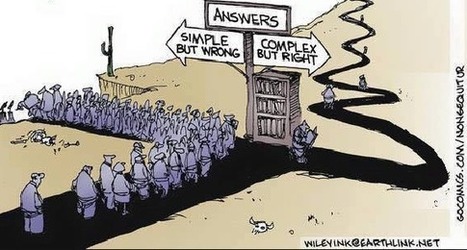

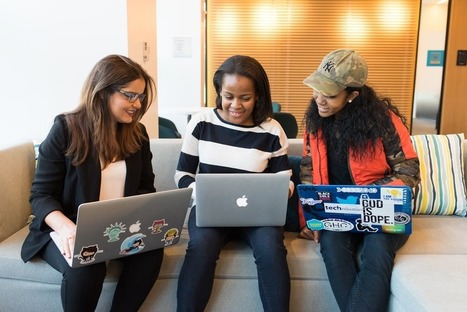



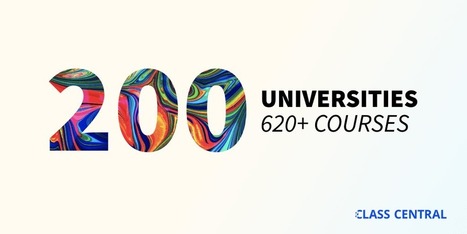

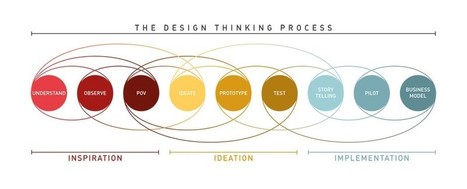


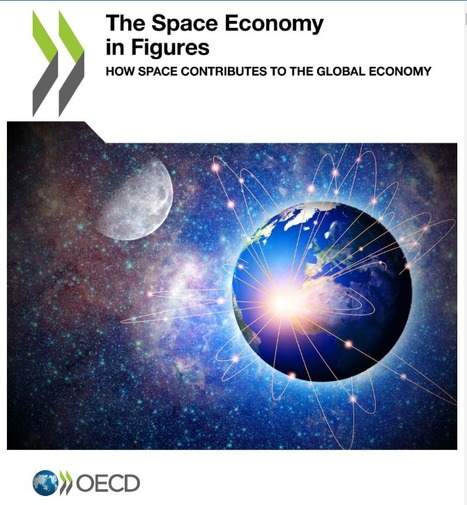
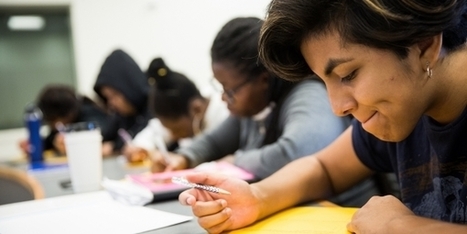


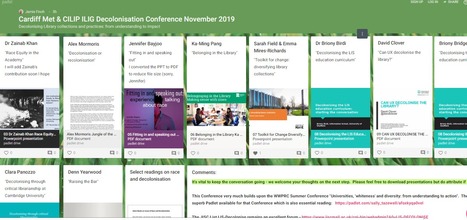

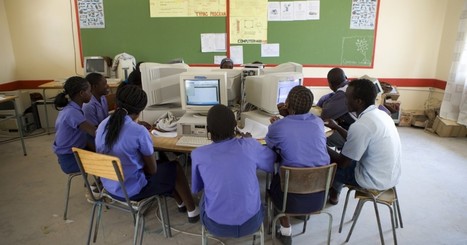
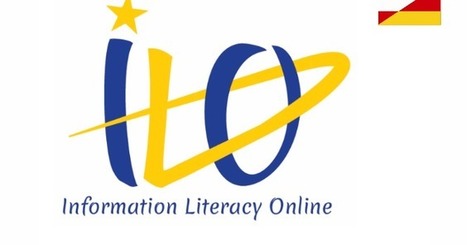
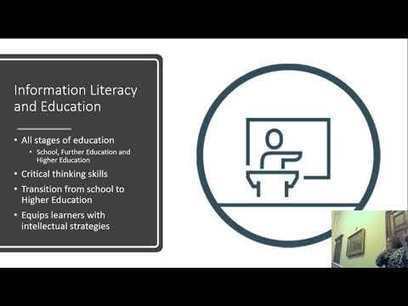
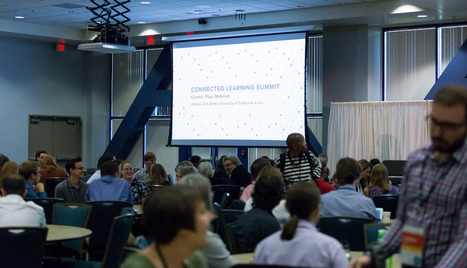

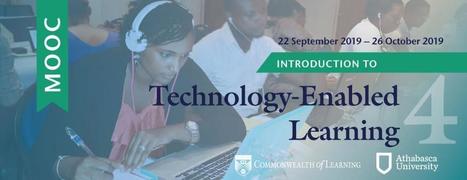


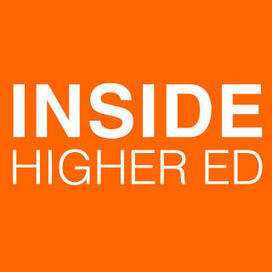





Programming language C might be 48 years old, but it's still hugely relevant for developers today and, by one measure, still more popular than Python.
That's according to Tiobe's January 2020 language popularity index. Tiobe, which bases its rankings on queries on major search engines, awarded C the programming language of 2019 title because it saw an increase of 2.4% in queries over the past year, which was greater than C#'s 2.1% and Python's 1.4%.
While machine learning and data science have propelled Python to new heights in 2019, Tiobe attributes C's continued popularity to the Internet of Things and the ton of smart devices being released these days.
Learn more / En savoir plus / Mehr erfahren:
https://www.scoop.it/t/21st-century-learning-and-teaching/?&tag=Programming...
https://thesmartadda.in/html-full-form-html-example-html-information-html-language/